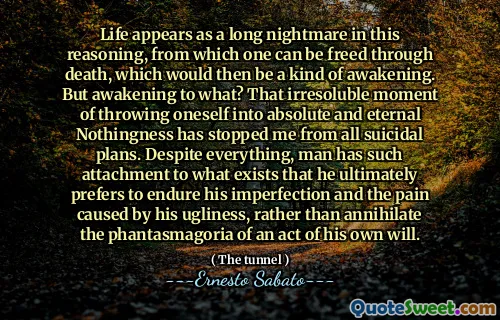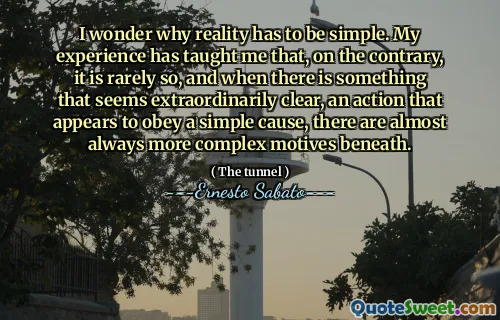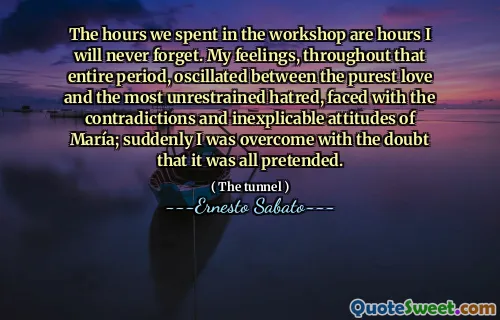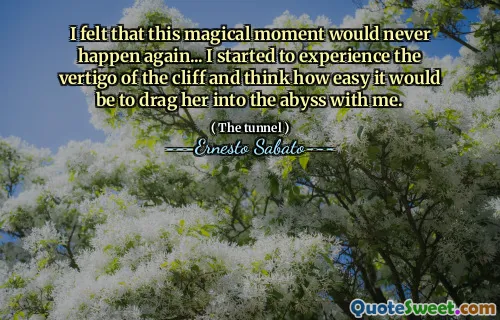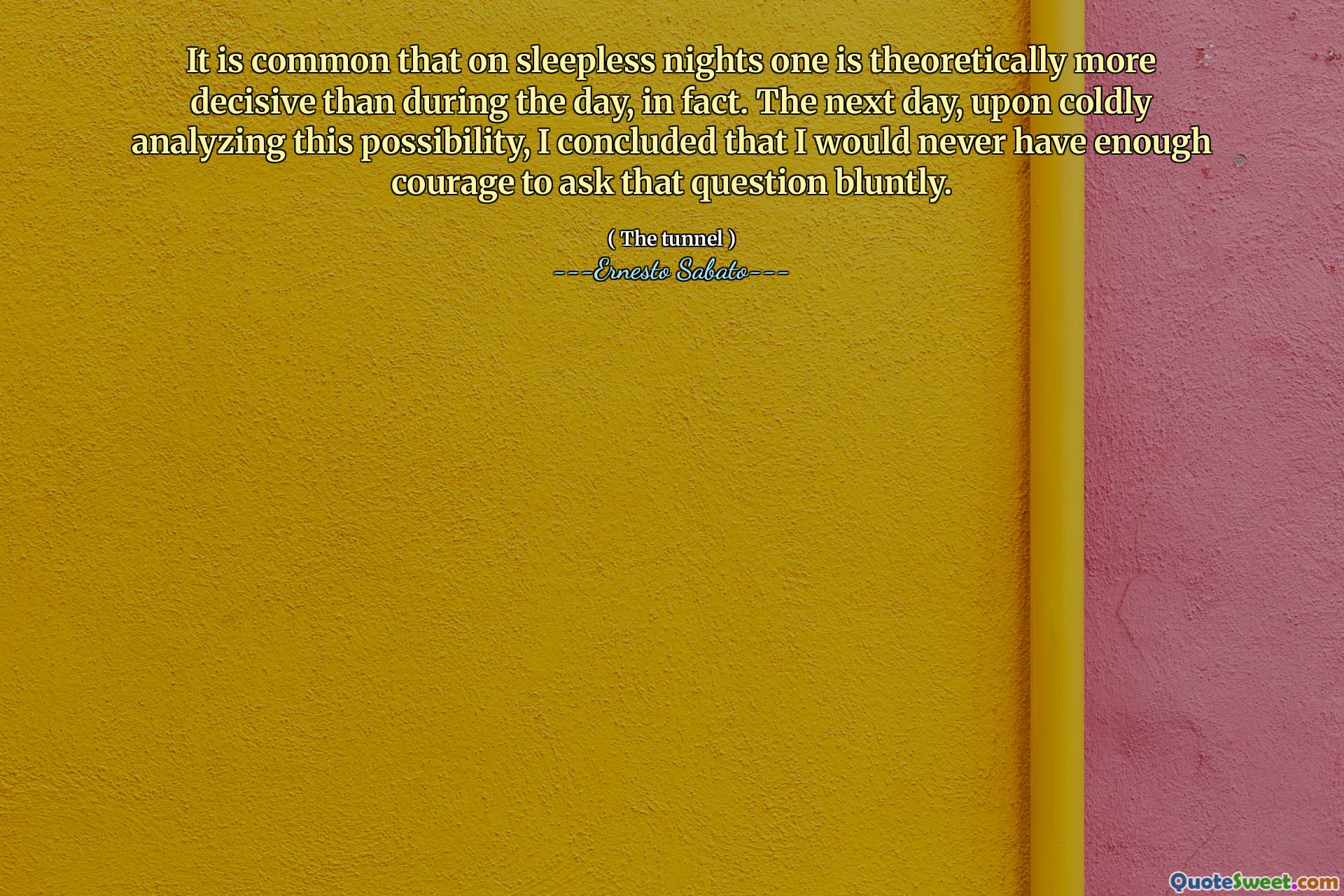
It is common that on sleepless nights one is theoretically more decisive than during the day, in fact. The next day, upon coldly analyzing this possibility, I concluded that I would never have enough courage to ask that question bluntly.
This quote poignantly captures the contrast between our emotional states and the clarity of our sober, rational mind. During sleepless nights, when fatigue and heightened emotions intertwine, one often feels a surge of boldness and resolve that seems absent during the mundane waking hours. This phenomenon highlights how the human psyche oscillates between impulsive feelings and restrained judgment. Yet, ironically, the very boldness felt in the isolation of the night evaporates when faced with the imminent reality of social interaction, the fear of rejection, or the vulnerability inherent in asking difficult questions.
The author’s admission—that upon calmer reflection, he realizes the courage felt at night is insufficient in daylight—reveals a universal human experience: the tension between desire and fear, between impulse and reason. It reminds us of how the context in which ideas arise influences our perceived capacity to act. Sleeplessness strips away the distractions of the day, exposing raw motivations and hypothetical certainties, yet daylight brings scrutiny, self-doubt, and the sobering consequences of action.
Moreover, this oscillation sheds light on the nature of courage itself. True courage is not simply impulsive fearlessness but requires the alignment of conviction with mindful action. Ernesto Sabato’s reflection resonates deeply in understanding the divide between internal readiness and external reality, a divide that many grapple with when confronting personal dilemmas or challenging decisions. It's a striking meditation on human hesitation, the fluidity of determination, and the complexity of human psychology.
